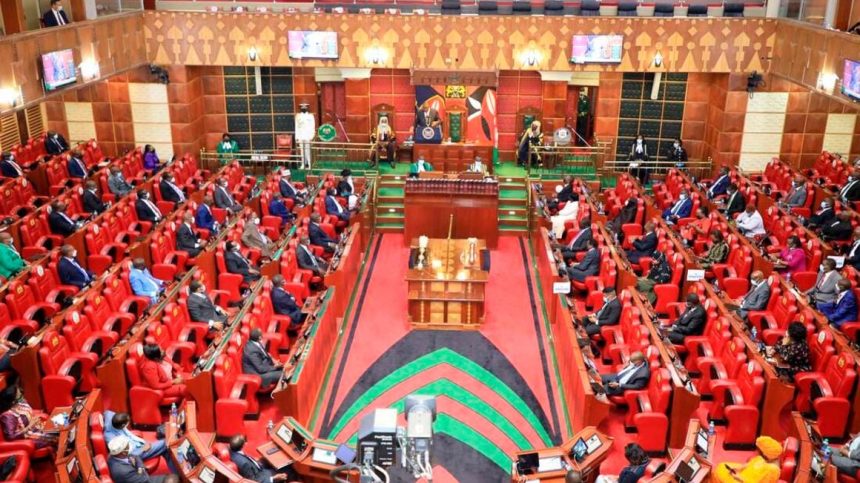The government has moved to salvage the petroleum business sector at the expense of Kenyans by increasing the VAT on petroleum from 8 percent to 16 percent.
Kenyans will now be forced to adopt green energy or bear with the increased cost of living as the government maintained that the negative impact of retaining VAT at 8 percent outweighs the positives.
This is despite the public outcry by different stakeholders that the increased percentage of VAT on petroleum products will raise the cost of living.
“The government stands to lose as petroleum businesses become perpetual creditors which then impact quality of service delivery by the government to the citizenry,” said Finance Committee Chair Kimani Kuria.
“Dealers incur VAT at 16 percent but when they sell it it’s at 8 percent. This means there’s an 8 percent difference.
Given the increase in the VAT on petroleum products, Kuria said they have proposed incentives to sectors that offer alternatives to fuel consumption by zero-rating bio fuel energy, Liquefied Petroleum Gas(LPG), and clean cooking stoves.
“We have had interest conservation with players of clean energy which include Koko Fuel which are able to produce bio ethanol for cooking which was costing Sh 10 bob for a family to prepare a meal,” said the Molo MP.
The proposed VAT increase comes at a time when global oil prices have been soaring, exerting additional pressure on consumers’ wallets.
The implementation of a VAT hike will further burden businesses and individuals already struggling to recover from the shocks of a pandemic-induced economic downturn.

Mobile Money Transfer
It’s a reprieve for Kenyans as the proposal to increase tax on mobile money transfers from 12 percent to 15 percent has been shelved.
Instead, the committee has resorted to retaining it at 12 percent as telco operators had argued that the move would have drawn back efforts of financial inclusion for low-income earners through mobile money.
The additional costs will likely be passed on to customers, many of whom are unbanked and rely on the service for essential daily payments.
“We have reduced the raise of tax on mobile money transfer from 15 percent to 12 percent,” Kimani stated.
Digital Content Tax
The income earned through digital content monetization will be subjected to a 5 percent withholding tax, which matches with the percentage rate for other professional services.
The bill defines content creators as any individual that is offering “entertainment, social, literal, artistic, educational or any other material electronically,” through websites, and social media platforms like Facebook, Twitter, or Instagram, in partnership with brands or retailers.
Content creators had faulted the William Ruto-led government’s plan to increase the tax to 15 percent saying it will stifle the creative’s industry.
“We observed that this was unfair because all the other professional fees, legal fees, accounting and insurance fees is charged at 5 percent. We said we are going to treat digital content creators just like all the other creators,” Kuria stated.
Export Levy
In the revised Finance Bill, 2023, the Finance Committee has proposed to impose additional levies on imported products such as steel, paper, plastics, and paints among other goods.
The proposed radical tax measures aimed at promoting local businesses, protecting jobs, and boosting manufacturing by zero-rating raw material components for manufacturing.
“We have zero rated all raw materials components that are used in assembling mobile phones. We are hoping that by them transferring incentives to Kenyans we are not just going to make our own mobile phones but we are going to export them,”Kimani noted.
To promote the manufacturing sector, the revised Bill proposes to provide for export levy, imported into the country for home use to promote local production at 17.5 percent.
“We have introduced export levy at 17.5 percent ,so those who import cement and bars from Kenya can export but it will be at a cost.We are going to make local products cheaper,”the Molo MP said.



